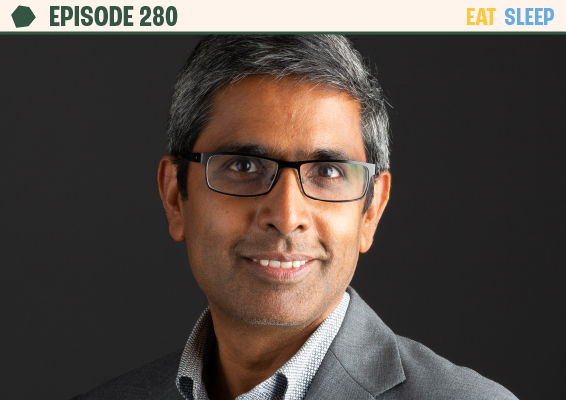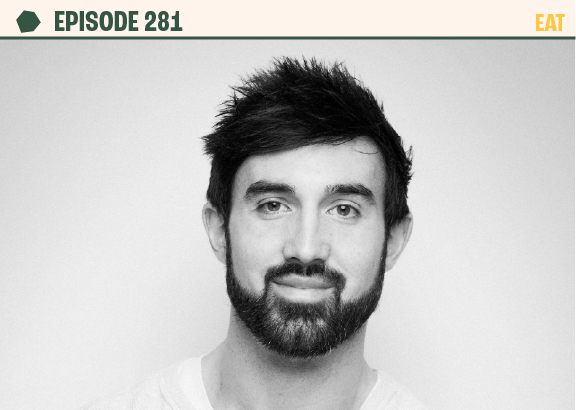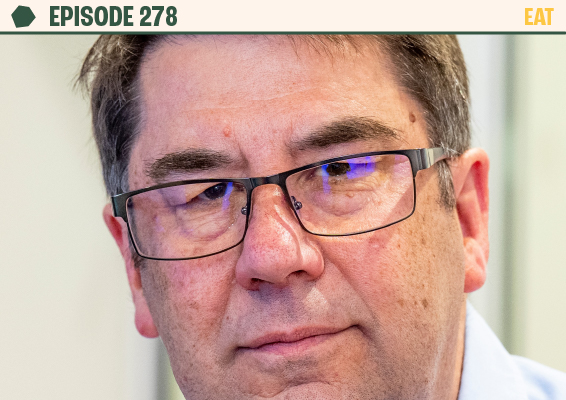In today’s fast-paced world, we’re all striving for better health, often focusing on diet, exercise, and mindfulness. But what if the secret to optimal wellbeing lies in aligning our lives with our natural circadian rhythms? In Episode #280, I’m joined by Satchin Panda, a pioneering researcher in circadian biology, to unpack the often-overlooked importance of “when”: when we eat, sleep, and put our screens down. Tune in to discover how you can harness your body’s internal clock for a healthier, more balanced life.
“People say ‘Well, one night of late night eating may not damage my body’. But if you do it again and again, even once a week if you’re eating too late into the night, then slowly that will catch up and you may experience some underlying conditions that you’re susceptible to.”
Dr Satchin Panda is a Professor at the Salk Institute in California. With a focus on circadian regulation of behaviour, physiology, and metabolism, Dr Panda’s research offers key insights into how our internal clocks affect our health. His studies range from identifying the role of blue-light sensing cells in the retina to investigating the benefits of time-restricted feeding for metabolic diseases. With a range of awards and an ongoing smartphone-based study on circadian disruption, Dr Panda brings both academic rigour and practical knowledge to our discussion today.
“All of us can benefit by reducing the severity of these [common chronic] conditions, and in some cases even get rid of medication, by following a strong circadian rhythm lifestyle.”
In this episode, we explore the fascinating world of circadian rhythms and how they influence nearly every aspect of our health. Dr Satchin Panda guides us through the mechanics of our internal body clocks, explaining the significance of having a “master clock” in our brain and peripheral clocks throughout our body. We also tackle practical issues such as the risks associated with circadian disruption, including jet lag and screen time.
Specifically, we discuss:
- Introduction (0:00)
- Understanding Circadian Rhythms: Do They Influence Longevity? (1:55)
- The Role of the Suprachiasmatic Nucleus (SCN) in Circadian Rhythms (6:20)
- Cellular-Level Circadian Clocks: An Overview (10:33)
- A Comprehensive Look at Circadian Disruption (15:56)
- Effective Strategies for Managing Jet Lag (26:39)
- The Impact of Blue Light on Circadian Rhythms (29:17)
- Criteria for Diagnosing Circadian Rhythm Disorders (33:42)
- Sensitivity Factors of Circadian Rhythms (34:58)
- The Significance of Meal Timing in Circadian Rhythms (39:30)
- Circadian Rhythms: Their Relation to Cholesterol and Blood Pressure (43:41)
- Exploring the Link Between Circadian Disruption, DNA Damage, and Cancer Risk (46:49)
- Circadian Disruption and Its Role in Chronic Disease Risk (49:34)
- Time-Restricted Eating and Metabolic Health (55:22)
- Outro (1:06:09)
By the end of this episode, you’ll gain a comprehensive understanding of why maintaining a strong circadian rhythm is crucial for long-term health. Dr Satchin Panda provides invaluable insights that are both scientifically rigorous and practically applicable. Don’t miss out on implementing these principles into your daily routine for long-term benefits.
To connect with Dr Satchin Panda, you can find him on Twitter and read his peer-reviewed papers on his profile. To learn more about circadian biology, his books, The Circadian Code and The Circadian Diabetes Code, are an incredible resource. You can also better understand your circadian rhythm while contributing to research with Dr Panda’s app, myCircadianClock.
Optimise your health with InsideTracker’s biomarker analysis. Get exclusive access to InsideTracker’s new ApoB test, and a significant discount at insidetracker.com/simon.
The best way to support the show is to use the products and services offered by our sponsors. To check them out and enjoy great savings, visit theproof.com/friends.
Enjoy, friends.
Simon
More about Satchin Panda, PhD
Satchidananda (Satchin) Panda, PhD is a Professor at the Salk Institute in California, where his research focuses on the circadian regulation of behaviour, physiology, and metabolism in model organisms and in humans. Dr. Panda discovered a blue-light sensing cell type in the retina entrains our master circadian clock, affects mood, and regulates the production of the sleep hormone melatonin. Recently, he discovered that maintaining a daily feeding-fasting cycle – popularly known as time-restricted feeding (TRF) – can prevent and reverse metabolic diseases. Based on a feasibility study in humans, his lab is currently carrying out a smartphone-based study to assess the extent of circadian disruption among adults. Dr. Panda has received the Julie Martin Mid-Career Award in Aging Research, Dana Foundation Award in Brain and Immune System Imaging, and was a Pew Scholar in the Biomedical Sciences
Supporting studies
- Time-Restricted Eating Without Calorie Counting for Weight Loss in a Racially Diverse Population : A Randomized Controlled Trial • PMID: 37364268








